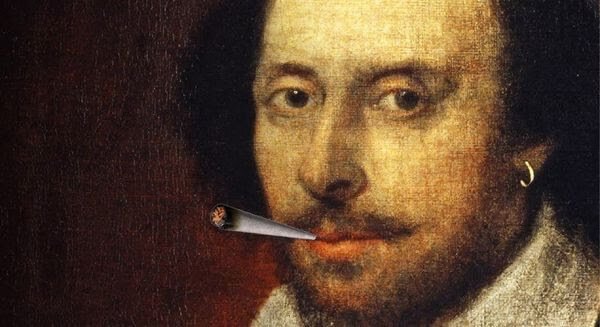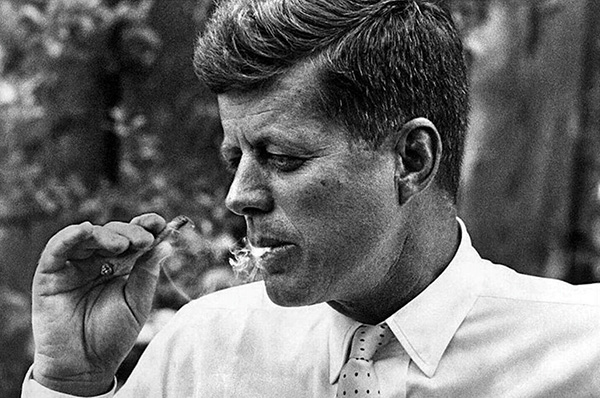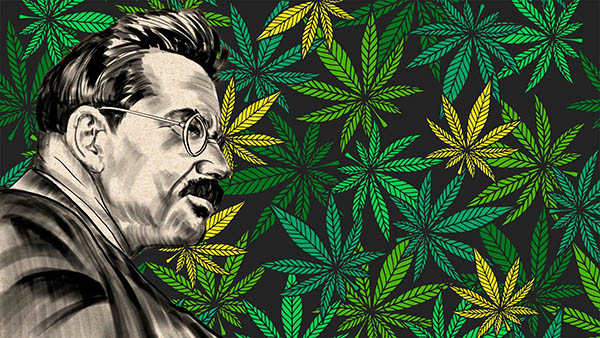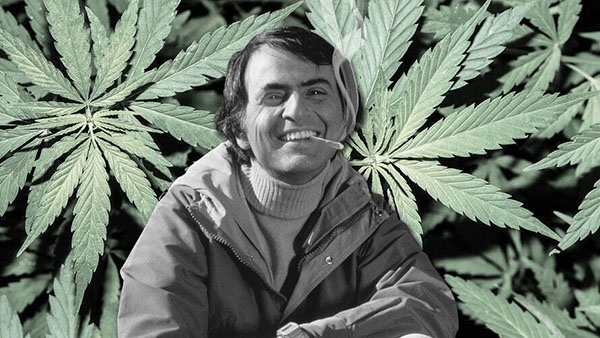Who are the Historical Figures Who Smoked Marijuana?
11 Historical Figures Who Smoked Marijuana

The cannabis industry today gets plenty of press from celebrities and even a few politicians partaking, but it's nothing new. Famous people have enjoyed getting high for as long as recorded history.
For a long time, the anti-cannabis propaganda proliferated the lie that smoking pot made people lazy, stupid, and unable to have a successful life.
The reality is, of course, nothing like that, and these myths have been largely debunked. Weed can provide plenty of positive inspiration and
instill the ability to help take action on those.
As the propaganda has been erased by fact and laws have changed to be more favorable of cannabis use, several strains have become known for their ability to spake creativity.
Weed lovers have always recognized and cherished the power of cannabis to help us seize the moment, make a difference, and get a lot of work done. This has been true since ancient times, as evidenced by the fact that some of the most monumental figures in human history have grown weed or enjoyed partaking of it.
The list of famous historical figures who have smoked weed is far too long to list in one article. In this article, we will look at some of the more well-known figures who significantly shaped the world.
George Washington
It's no secret that America's founding fathers loved to party. At least four of them are known to have grown marijuana - Thomas Jefferson, Benjamin Franklin, James Madison, and yes, the first US president, George Washington.
At the time, hemp was an important cash crop. British and American ships used hemp rope and hemp canvas for their sails. Hemp was also used for paper and other non-intoxicating uses.
From 1619, under decree from then King James I, the colonists of Jamestown were told they should help support the causes of England. You could even be fined for not growing hemp.
Washington grew a great deal of marijuana and praised it with enthusiasm. The plant continued to be grown until its use was banned in the early 1900s by the enemies of fun, freedom, and liberty.
After the founding of the nation, Washington retired to a farm in Mount Vernon. One of the main crops he grew was hemp.
The hemp grown by Washington would likely have gone to industrial use rather than be smoked as the hemp he grew is different than cannabis and would have contained hardly any THC, so it is unlikely that it would generate anything like the high of pot today.
While entries in Washington's journal strongly suggest that he had a keen interest in the medical use of marijuana, nothing indicates he smoked or experienced a high from smoking weed.
Joan of Arc
Joan of Arc, who was burned at the stake for heresy, claimed to have received visions and messages from the Archangel Michael. Although there is no written record of Joan of Arc consuming cannabis, she came from a village known for making "witch ointments" from herbs such as cannabis.
In 1412, the sacred mystic and battlefield conqueror Joan of Arc was born in a village known for using cannabis and other psychoactive herbs.
At age 15, Joan reported receiving a divine message instructing her to lead Charles VII's army in battle against England, allowing him to be crowned King of France. Armor-clad and amped up enough to communicate with angels, Joan did just that and became a national hero.
Under the command of King Charles, Joan continued to fight until she became a victim of enemy combatants at the age of 19.
The Anglo-Burgundian authorities accused Joan of Arc of using "witchcraft herbs," among other crimes, and burned her at the stake. So, where there is fire, there could well have been some smoke.
William Shakespeare
Based solely on A Midsummer Night's Dream - which features fairies, imps, and spells for donkey heads - playwright William Shakespeare seems a likely candidate for the "Bard of Bud."
Many Shakespeare scholars have also pondered whether he alluded to the use of cannabis in his other works.
In 2015, a scientific study suggested that Shakespeare could have been smoking pot while writing his sonnets and plays.
The study analyzed tobacco pipe fragments from Stratford-upon-Avon, where Shakespeare lived, four of which were confirmed to have come from the author's own garden, each containing traces of cannabis.
"To blaze or not to blaze?" We can now guess how the bard would answer that question.
Alexandre Dumas
Although Dumas is primarily known for The Three Musketeers and The Count of Monte Cristo, he was also a hash enthusiast.
France was awash with marijuana in all forms in those days. But Dumas took his enthusiasm to a new level. He even helped found an organization called the "Hashchin Club."
In English, it translates to The Hash Eaters Club.
This Parisian group was dedicated to exploring drug-induced experiences, particularly with hashish, but the members also experimented with opium.
Pharaoh Ramses II
Pharaoh Ramses II, known as Ozymandias in Greece, ruled ancient Egypt from 1279 to 1213 BC. He was revered for his wisdom and leadership, and Egyptians still call him the "Great Ancestor." Ramses the Great also valued hemp so much that he took some of it to his tomb.
Centuries after the burial, scientists exhumed Ramses' mummy and found cannabis pollen in the remains. Historians have also confirmed that cannabis was often used in medical and religious practices in ancient Egypt.
A 26ft high colossus of a king was unearthed near the tomb and is thought to be of Ramses the Great or Ozymandias. He led several military campaigns, expanding the empire from Syria to Northern Sudan. The 1818 Sonnet by Percy Bysshe Shelly contains the lines "My name is Ozymandias, king of kings: Look on my works, ye Mighty, and despair!"
So, was marijuana the X-factor in building such mighty works? It's something to contemplate when smoking your next joint.
John F. Kennedy

When we think of John F. Kennedy performing "extra-presidential" duties in his executive office, we usually think of movie stars like Marilyn Monroe sneaking in.
However, author Michael O'Brien's 2005 Biography of John F. Kennedy asserts that on July 16, 1962, Kennedy set fire to at least three joints in the White House provided by Mary Meyer, a socialite with close ties.
O'Brien wrote that marijuana made the president paranoid, prompting him to reject a fourth joint, telling Meyer: "Suppose the Russians did something now."
The book also alleged that Kennedy compared marijuana unfavorably to cocaine and offered to give Meyer some blow in the future. It makes it all the more tragic that Kennedy didn't live to see the psychedelic end of the '60s.
Walter Benjamin

The writings and teachings of Walter Benjamin, the German philosopher who resisted the Nazis, profoundly influenced modern thinking and ideology about history, economics, religion, public policy, and drug abuse.
Benjamin came to these enlightened perceptions by consuming large amounts of cannabis and jotting down notes about his experiences and feelings. It's more a case of the stoned philosopher than the philosopher's stone.
These notes were reworked and fueled his prolific academic output that was taught and studied all over the world.
Even though Walter killed himself in 1948 by overdosing on morphine, the title of Benjamin's 2006 book perfectly sums up his relationship with plants. Simply put, it's called "On Hashish."
Christopher Columbus
For centuries, Christopher Columbus has been hailed as the brave explorer who "discovered America." Still, today, he's getting a bad rap. The colonization and genocide practiced and inspired by Columbus are not something a world properly enlightened by cannabis should continue to contain.
Still, even the devil must get his due: Christopher Columbus sent a shipload of marijuana from Europe to North America. The Nina, Pinta, and Santa Maria were reportedly loaded with enough green for the captain and crew to happily navigate the blue ocean and then plant fresh crops after landing.
In fact, cannabis and Columbus are so closely intertwined that the base of the Columbus statue in Madrid is decorated with hand-carved cannabis leaves.
Queen Victoria
Queen Victoria, who ruled Britain from 1837 until she died in 1901, unknowingly pioneered modern medicine. She became one of the first patients to be prescribed cannabis for menstrual pain and other problems.
Like many contemporary users, Queen Victoria took cannabis in tincture form.
Her personal physician, Sir Robert Russell, wrote extensively about the medical benefits of cannabis. It's believed he would craft tinctures for her from cannabis that he grew.
Sadly, recreational cannabis is still illegal in England. Those lawmakers in Westminster should pay closer attention to their own history!
Hua Tuo
You may not have heard of Hua Tuo, but he is famous for inventing the world's first anesthetic. The recipe? Powdered cannabis mixed with wine. While that's not great by modern medical standards, it certainly sounds like a good time.
Carl Sagan

One of the luminaries of the scientific community, Carl Sagan was an American astronomer, cosmologist, astrophysicist, author, and communicator of science and a lifelong marijuana user.
He was also well known for advocating for the legalization of marijuana. He once wrote an essay under the pseudonym "Mr. X" about its positive effects on his life and why it should be legalized. In that essay, he wrote perhaps the most persuasive argument for legalization. One that it is fitting to end this article on.
"The illegality of cannabis is outrageous, an impediment to full utilization of a drug which helps produce the serenity and insight, sensitivity and fellowship so desperately needed in this increasingly mad and dangerous world."
